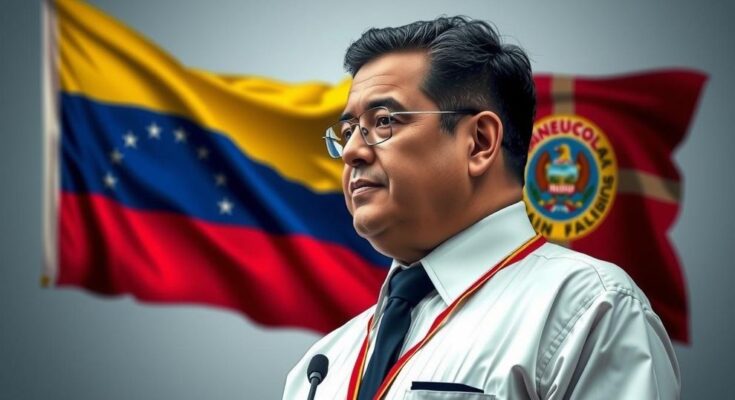Venezuela has rejected U.S. recognition of Edmundo González as “president-elect” and severed ties with Paraguay, asserting sovereignty amid ongoing political turmoil. The government vows to respond firmly to any attempts at destabilization as the opposition continues to contest electoral legitimacy following Maduro’s re-election. With heightened tensions and an arrest warrant against González, the political landscape remains fraught with conflict and international scrutiny.
On January 7, 2025, the Venezuelan government issued strong statements against the Biden administration’s recognition of Edmundo González Urrutia as “president-elect” ahead of Nicolás Maduro’s inauguration for a new presidential term. The Venezuelan Foreign Ministry criticized the United States for using outdated intervention tactics and asserted that such actions disregard the will of the Venezuelan populace. The government vowed to maintain its sovereignty and respond decisively to any attempts to destabilize the country.
González was welcomed by President Biden in Washington, where discussions focused on efforts to restore democracy in Venezuela. Biden reiterated his commitment to monitor opposition activities and hold Maduro accountable for his actions. González, exiled in Spain, plans to return to Venezuela for his expected inauguration but faces legal challenges. His self-exile has raised questions about the legitimacy of his claims to presidency, as an arrest warrant for several charges has been issued against him.
Tensions escalated as Venezuela severed diplomatic ties with Paraguay after a meeting between González and Paraguayan President Santiago Peña, who also pledged support for restoring democracy in Venezuela. Venezuela accused Peña of prioritizing foreign interests over national policy, escalating diplomatic disputes between the two nations, which had recently reconvened relations. The political landscape remains fraught with allegations of election manipulation and unrest, as Caracas continues to defend Maduro’s administration against opposition claims of electoral fraud.
The ongoing political crisis in Venezuela has been characterized by disputes over election results and governance legitimacy. Nicolás Maduro, who leads the ruling government following contentious elections, faces opposition from various factions, including the recently recognized Edmundo González. International intervention and recognition of opposition leaders have complicated the situation, prompting Venezuela to vehemently reject foreign involvement. The discourse surrounding Maduro’s regime, the U.S. government’s stance, and the regional dynamics involving countries like Paraguay play critical roles in shaping Venezuela’s current political climate.
The Venezuelan government’s rebuff of U.S. interference exemplifies its commitment to sovereignty amidst international scrutiny. The recognition of Edmundo González as “president-elect” has heightened tensions, leading to the severance of diplomatic ties with Paraguay. As political and legal challenges mount for opposition figures, the legitimacy of forthcoming electoral claims will likely continue to be a source of contention in Venezuela’s fraught political landscape. The situation is closely monitored by both domestic and international stakeholders, emphasizing the volatile intersection of politics, governance, and external influence.
Original Source: venezuelanalysis.com




